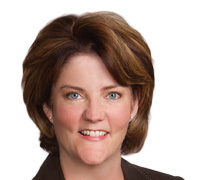While it’s true that women are achieving at a superior rate to men in many areas of undergraduate and graduate education, they lag far behind in obtaining MBAs. Historically, only a third of MBA graduates are women. At the same time, by some estimates, 60 percent of today’s business leaders have an MBA, and 42 percent of Fortune 500 CEOs have MBAs. However, according to a Catalyst study, among women, who comprise nearly 50 percent of the workforce, only 14 percent become executive officers and less than 4 percent advance to CEO. So it’s not surprising that women are not proportionally represented in leadership roles.
There is good news. When women assume leadership roles, companies benefit. A Catalyst study showed companies with a higher representation of women in senior leadership make better decisions and have better returns, risk management, and corporate governance. Also, there is significant proof that an MBA leads to enhanced career opportunities for women, with pay, expectations, confidence, and mentors. On average, women earn 77 cents on the dollar; for women MBAs that number increases to an average of 85 cents.
I believe that women’s access to an MBA is a critical missing link in ensuring women advance in business and assume leadership roles. So, influencing women’s perceptions about business careers—that they can be flexible, philosophically rewarding, and aligned with the principled, multi-faceted life women seek—is critical. I believe passionately in the power of education and want to inform women on all of their options pertaining to business, empowering them to make an informed personal decision.
Women need role models in the highest ranks of business leadership. Therefore, Forté has become a key U.S. member of an initiative being led by the European Commission to get more women on corporate boards and to provide corporations with better access to board-ready women. Forté will leverage its unique position in the U.S. as the only organization that connects the top business schools around the topic of women in business to expand this effort to U.S. business schools. We hope the stories of these women and their peers provide inspiration, even from a distance.
Meaningful change starts with education, which leads to self-empowerment. The resources and opportunities for women to advance professionally are here. It’s time to act deliberately and capitalize on them.







